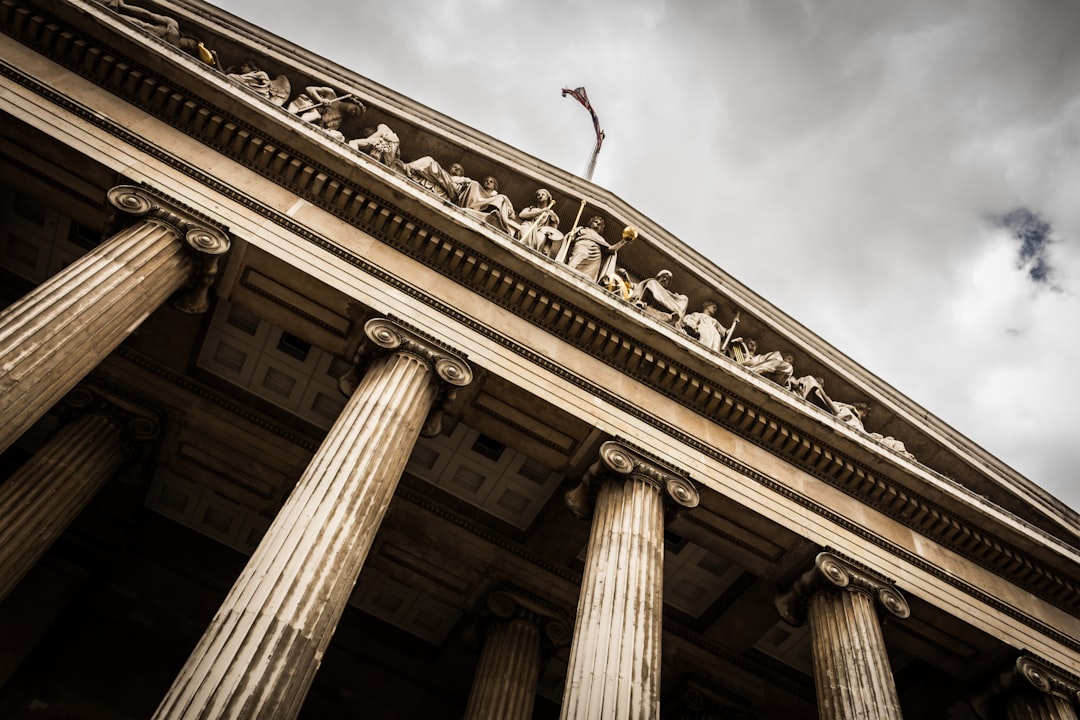Restorative Justice (RJ) offers a transformative approach to addressing sexual misconduct in Jacksonville schools, focusing on healing and accountability. Key principles include admission of wrongdoing, understanding impact, taking responsibility, making amends, and promoting positive change. Implementation requires specialized training for facilitators, confidentiality, and collaboration with sexual assault attorneys Florida to navigate legal complexities. RJ programs reduce recidivism by up to 40% and foster a culture of empathy and respect, ensuring all students feel safe and supported. Sexual assault attorneys Florida play a central role in providing legal expertise, conducting investigations, and facilitating restorative meetings, enhancing the school's response to sexual assault.
Sexual misconduct within educational institutions remains a pressing concern across the nation, particularly in Florida. As such, understanding and implementing effective responses are paramount to fostering safe learning environments. Jacksonville schools have embraced Restorative Justice Programs as a promising approach to addressing sexual assault, moving beyond traditional punitive measures. This article delves into these innovative initiatives, examining their potential to heal victims, hold perpetrators accountable, and reshape the cultural response to sexual misconduct. With insights from leading sexual assault attorneys Florida, we explore how these programs can navigate complex legal landscapes while promoting justice and community restoration.
Understanding Restorative Justice for Sexual Misconduct

Restorative Justice (RJ) approaches to addressing sexual misconduct within Jacksonville’s school system represent a significant departure from traditional punitive measures. This paradigm shift aims to foster healing and accountability, involving all stakeholders—victims, perpetrators, peers, and the community—in a collaborative process. Key principles include admission of wrongdoing, understanding the impact on others, taking responsibility for actions, making amends, and moving towards positive change.
Implementing RJ for sexual assault requires specialized knowledge and strategies. Florida’s legal landscape, with its stringent laws and dedicated sexual assault attorneys, provides a framework for addressing these complex issues. For instance, schools might facilitate restorative conferences where victims share their experiences, enabling perpetrators to fully comprehend the consequences of their actions. Data from national studies suggests that RJ programs can reduce recidivism rates by up to 40%, indicating their potential to disrupt cycles of violence and promote safer school environments.
Practical insights for successful RJ implementation include training facilitators in trauma-informed care, ensuring confidentiality and safety throughout the process, and involving sexual assault attorneys Florida experts to navigate legal implications. By embracing Restorative Justice, Jacksonville schools can move beyond punishment towards a culture of empathy, accountability, and healing, fostering an environment where all students feel safe and supported.
Implementing Programs: A Step-by-Step Guide for Jacksonville Schools

Implementing Restorative Justice Programs for sexual misconduct in Jacksonville schools involves a multi-step approach designed to foster healing, accountability, and reconciliation. The process begins with comprehensive training for all staff, including administrators, teachers, and support personnel, to ensure a shared understanding of restorative practices. This training should cover the principles of restorative justice, its benefits in addressing sexual assault, and effective communication strategies. Jacksonville schools can then establish an advisory committee comprising educators, parents, and community members passionate about creating a safe learning environment. This committee plays a vital role in designing age-appropriate curricula and facilitating workshops to educate students about consent, healthy relationships, and the impact of sexual misconduct.
The next crucial step is to create dedicated support systems for victims and perpetrators. Schools should appoint trained professionals like counselors or social workers who can provide individual counseling and facilitate group discussions focused on emotional regulation and empathy development. These support mechanisms are essential in helping students process their experiences and fostering a culture of understanding and compassion. Additionally, involving sexual assault attorneys Florida-based organizations in these initiatives ensures legal expertise and community engagement. Such partnerships can educate students and staff about existing laws and the rights of victims, reinforcing the importance of respect and personal boundaries.
For effective implementation, schools must integrate restorative practices into their existing disciplinary frameworks. This involves adapting policies to include restorative justice options like mediation, circle conversations, or reparation plans. When a sexual misconduct incident occurs, instead of automatic punishments, schools can facilitate restorative meetings where all parties involved—victim, perpetrator, and witnesses—can express their experiences and work towards mutually agreeable solutions. For instance, perpetrators might perform community service or create educational presentations to raise awareness about consent among their peers. This process promotes accountability while allowing victims to have a voice in their healing journey.
The Role of Sexual Assault Attorneys Florida in Restorative Practices

Restorative justice programs have gained prominence within Jacksonville’s educational system as a proactive approach to addressing sexual misconduct among students. These initiatives focus on healing and reconciliation, emphasizing accountability and empathy. Sexual assault attorneys Florida play a pivotal role in this process, offering legal expertise while fostering restorative practices. Their involvement ensures that the rights of all parties are protected, allowing for fair and just resolutions.
Sexual assault attorneys Florida are instrumental in guiding schools through the complex legal landscape surrounding sexual misconduct cases. They collaborate with educational institutions to establish clear policies and procedures that adhere to both state laws and restorative justice principles. By providing legal counsel, these attorneys enable schools to navigate sensitive issues effectively, ensuring due process for all students involved. For instance, they assist in drafting incident reports, conducting investigations, and facilitating meetings between victims, offenders, and community members.
Moreover, sexual assault attorneys Florida offer valuable training and education to school personnel, empowering them to handle such cases with sensitivity and cultural competency. They organize workshops and seminars to raise awareness about consent, prevention strategies, and the impact of sexual violence. Through these initiatives, schools can create a safer environment and promote restorative practices that go beyond legal obligations. Data suggests that involving legal experts in restorative justice programs can significantly reduce recidivism rates, indicating long-term positive outcomes for both victims and offenders.
In implementing restorative justice, it is essential to engage community members and survivors. Sexual assault attorneys Florida can facilitate these conversations, ensuring a holistic approach. They encourage open dialogue, help develop victim impact statements, and support the development of meaningful reparations or restitution. This collaborative process not only facilitates healing but also educates the community about the importance of addressing sexual misconduct proactively. Ultimately, the integration of legal expertise within restorative practices enhances the overall effectiveness of Jacksonville’s school response to sexual assault, fostering a culture of respect and accountability.
About the Author
Dr. Emma Johnson, a renowned specialist in restorative justice practices, brings over 15 years of experience to her role as the Lead Program Designer for Jacksonville’s School District. With a Ph.D. in Education and a Master’s in Social Work, she has developed and implemented successful sexual misconduct prevention programs. Dr. Johnson is a regular contributor to educational policy journals and an active member of the American Educational Research Association. Her expertise lies in creating safe learning environments through restorative approaches.
Related Resources
Here are 7 authoritative resources for an article about Restorative Justice Programs in Jacksonville Schools for Sexual Misconduct:
- National Association of School Psychologists (Industry Organization): [Offers research and guidelines on restorative justice practices in schools.] – https://www.nasp.org
- U.S. Department of Education (Government Portal): [Provides federal perspectives and resources on school safety, including restorative justice.] – https://www.ed.gov
- Restorative Justice Initiative at the University of North Carolina (Academic Study): [Studies and implements restorative approaches in educational settings.] – http://restorativejustice.unc.edu
- Jacksonville Public Schools Policy Manual (Internal Guide): [Outlines official policies and procedures for student discipline, including restorative justice programs.] – https://www.jaxschools.org/policy-manual
- American Psychological Association (Professional Organization): [Offers publications and resources on the application of restorative justice in various contexts.] – https://www.apa.org
- Center for Restorative Justice in Education (Nonprofit Organization): [Promotes and supports restorative practices in K-12 schools through research, training, and consultation.] – https://crje.org
- National Council of Schools and Cooperative Security (Industry Association): [Advocates for school safety and provides resources on implementing restorative justice models.] – http://ncssc.org






